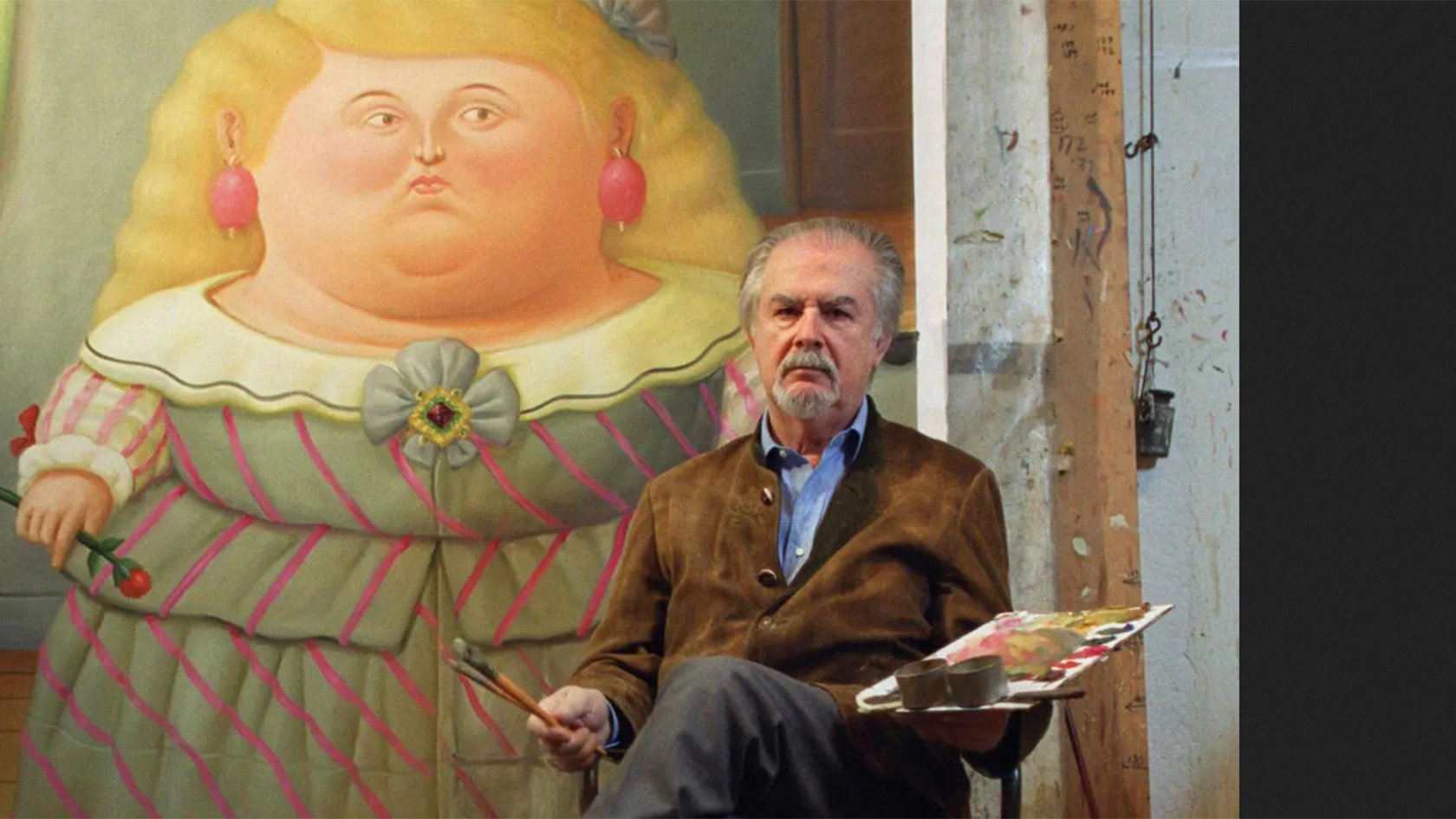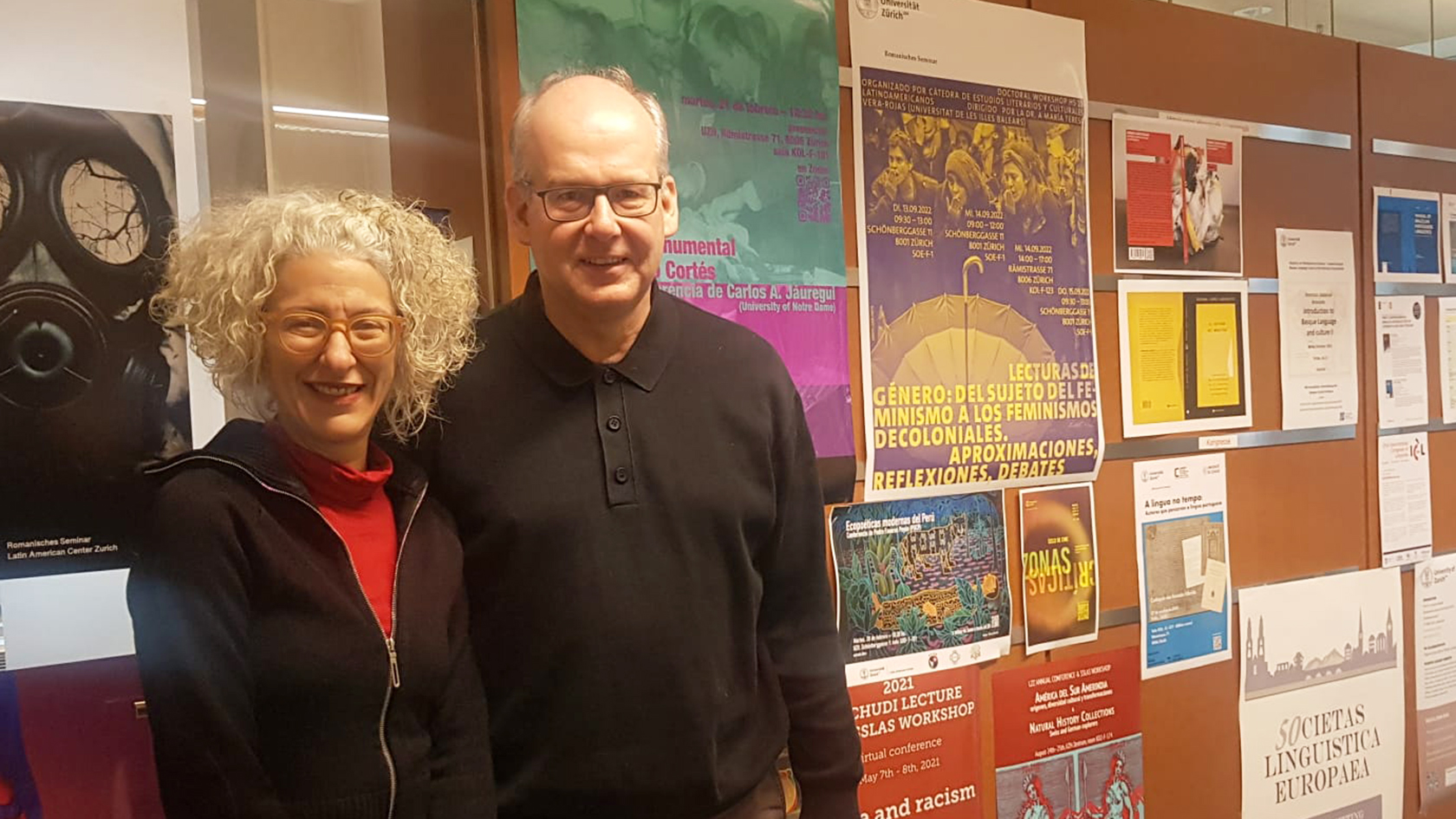High Demand for Latin American Studies

With their lush colors and exuberant forms, the paintings of Colombian artist Fernando Botero are admired by art-lovers all around the world. Shortly after Botero’s death at the age of 91 in September this year, the Latin American Center Zurich (LZZ) organized a memorial event in conjunction with the Colombian embassy. “People came in droves,” says Johannes Kabatek, linguist and co-director of the LZZ at the University of Zurich. For Kabatek, the event shows how the center appeals to a wide range of people from outside the university. Other such events include the literature club (Club de Lectura de Literatura Latino-Americana) and events staged together with the Theater Neumarkt.
On the more academic side, the LZZ also organizes specialist in-depth conferences and lectures. The center’s director, cultural studies specialist Adriana Lopéz-Labourdette, highlights two events from the Fall Semester program: in October, an online lecture titled “What is Environmental Justice” critically analyzed the exploitation of natural resources from the perspective of the Global South; and coming up this Thursday (16 November), an online event will examine the topic of slavery and ships’ cooks, “Between Freedom and Mass Slavery”. “We use various event formats aimed at different groups,” says Lopéz-Labourdette. For example, film screenings and performances share space on the agenda with lectures and discussions involving various members of the Latin American community. Or, in the words of Kabatek: “We’ve come down from the ivory tower, but we haven’t morphed into a salsa party.”
Modern and global
The LZZ was founded in 2015 from an initiative launched by a mixed group of social scientists, natural scientists and humanities scholars who recognized that Latin American studies could provide unique opportunities for interdisciplinary research activities. At the center, the continent is not seen as the passive subject of research; rather, the aim is to create a dialogue between and among researchers and communities to explore current questions of cultural identity, sustainability and urban living, among others. With its diverse population and ever-changing political dynamics which oscillate between reforming and conservative tendencies, the continent is an extremely interesting “laboratory for modernity and globalization”, as the center’s mission statement says.

Over the past few years, the LZZ has launched a series of smaller and larger research studies, supported collaborative projects with researchers in Latin America and cultivated lively transcultural academic exchanges. A good example of the interdisciplinary and collaborative nature of the LZZ’s approach was this year’s annual event held in conjunction with the Swiss School of Latin American Studies (SSLAS), focusing on two main topics: the origins, cultural diversity and transformations of indigenous communities, and the legacy of Swiss and German explorers and their collections. The two-day event, held in Spanish, Portuguese and English, attracted high-quality speakers and provided fascinating insights into current ethnological, linguistic and anthropological research. (Videos from the event are available on the LZZ website.)
Another area of focus for the center is research into Iberian Romance and Iberian American languages. For example, in mid-December the LZZ will host a congress on the multiple centers of the Spanish language, with participants from Europe and Latin America. As the congress will have a hybrid format, experts from both continents will be able to take part either on-site at UZH or online from their home countries. For Johannes Kabatek, it makes perfect sense for UZH to host such an event. After all, outside of the Spanish-speaking world, multilingual Switzerland has one of the highest proportions of Spanish-speaking residents: around 600,000 people, or almost 7 percent of the population in Switzerland speak Spanish.
More Latin American studies
Adriana López-Labourdette and Johannes Kabatek are upbeat about the future: the two LZZ co-directors have noticed a growing interest among students in the area of Latin American studies. They are therefore planning to boost opportunities in this area by increasing the number of courses related to Latin America, for example in the fields of art history or legal history.
The picture for Latin American studies is not completely rosy though. Demand from students is somewhat contradictory: while individual classes and modules relating to Latin America are popular, the number of students enrolling in a traditional degree course in Iberian Romance languages (Spanish and Portuguese) is decreasing – a trend observed in universities across Switzerland. However, the directors of the LZZ remain optimistic and see this as an opportunity to expand their range of courses and events in line with the growing interest from students from a range of subject areas.
Despite the LZZ’s good position and upward trajectory, there is one more cloud on the horizon: funding. Formally, the LZZ is a Center of Competence of the university and is supported by the Faculty of Arts and Social Sciences. Even though it received a positive evaluation, the center’s funding for the coming year has been slightly reduced. That means one of the coordination positions will have to be cut, sigh the two directors, and they will probably have to look for alternative funding. But the pair will not allow this setback to discourage them. The LZZ with its many popular activities is currently experiencing a well-deserved boom – long may it last!